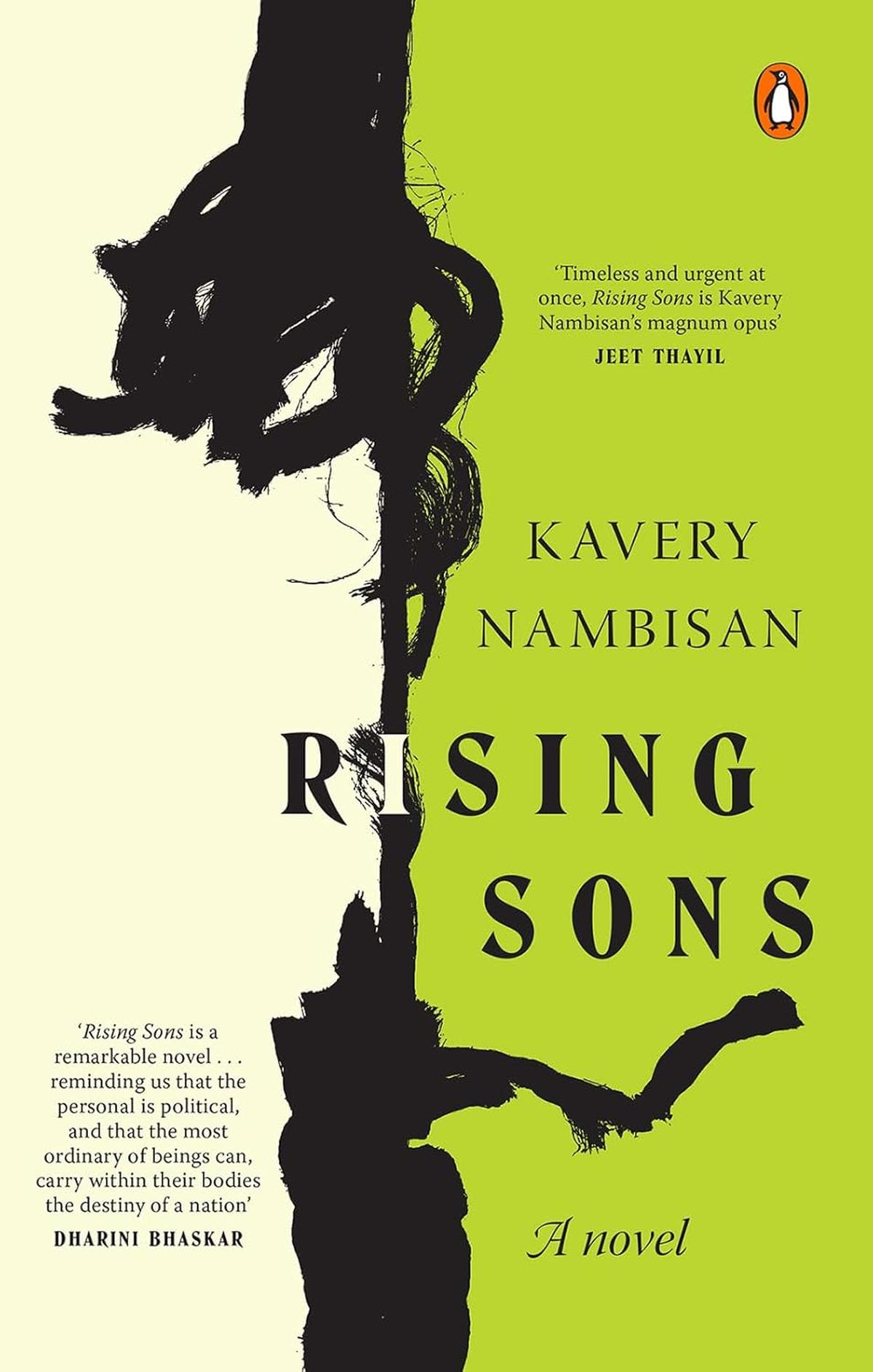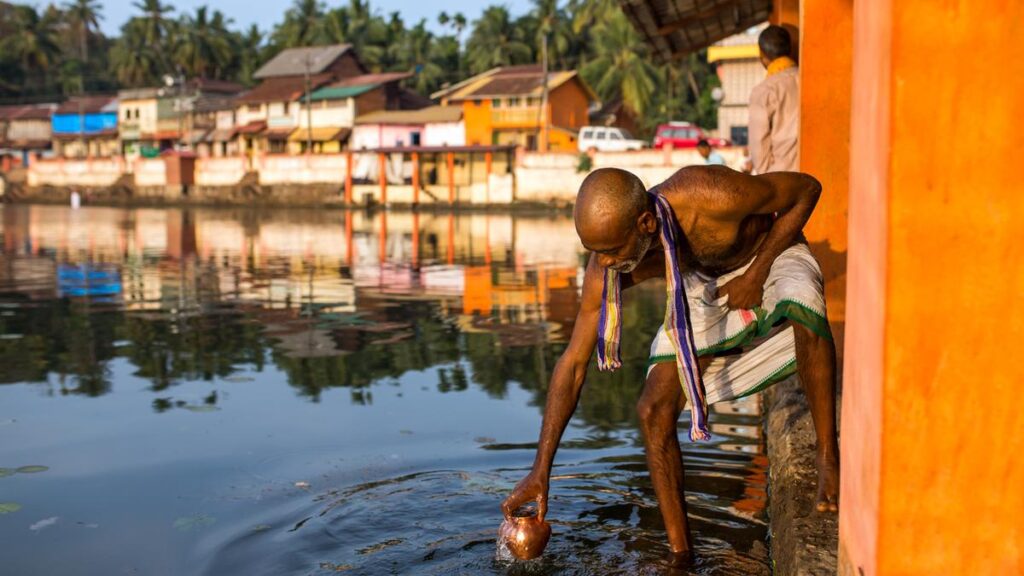
The story, told in four parts, is set in a fictional village in Karnataka.
| Photo Credit: Getty Images
Kavery Nambisan’s Rising Sons is an old-fashioned chunky family saga. The authoritarian Devaraya and his cautious wife Gowru bring up two sons and two daughters. Their story begins with a hint of a secret in a letter opened and read by Devaraya, and then hidden away from his wife. That secret will explode halfway into the book, seeming to end everything — but more of that in its place.
Like God, or John Steinbeck, Nambisan begins her act of creation with mud and water. The story, told in four parts, is set in the years before Independence, in the fictional Karnataka village of Kesarugattu, populated by 57 families who will eat for a year if the rains bless their dry lands. British masters are still caning brown-skinned students. Newspapers are reverently read out loud. “God save the King” is shouted against a background hum of revolt.

From the opening scene of the mysterious letter, the writer flashes back to the meeting of Gowru and Devaraya. Gowru’s upbringing in an orphanage is fleshed out generously, so that we become invested not only in her life but also in the stories around her. The transactional marriage between Gowru and Devaraya is convincingly drawn, as are the village rivalries, caste tensions, family celebrations at which the main concern is to outdo every other family’s celebration, and daughters who must be guarded till they are handed over, as ponderously as a full pot of water, to another family’s control. Nambisan writes of “our village” and “our daily lives”, as a narrator not actually introduced to the reader, but present, and not quite impartial. The result is a voice that is real, and lives played out against a spacious and richly detailed landscape.
Jumping caste
In schools, there are inside students and outside students. Class and caste structure are jolted, sometimes accidentally, as with the student suspended for wearing a panche or dhoti because he simply cannot afford the drill for his shorts. He sets off a sudden reaction of sartorial patriotism among many students, till the school is forced to rethink its rule.
Or with Sumana, the broad-shouldered “untouchable” labourer whom the women’s eyes follow. At every event, he and his many fellows erect the shamiana, assemble the dais, place the benches, take the whole show down again the following day, and carry home the leftovers. They are present but not present at these celebrations. When Sumana is excessively punished for an unintended brush against a woman, the villagers experience what happens when the non-present actually absent themselves. In the face of unswept streets and uncleared drains, the upper castes are helpless.
The novel glides along episodically, at low-intensity, till it is rattled by the revelation that Devaraya had in his youth jumped caste. Driven by fear and hunger, he had fled his family and cholera-struck village. He had passed as a Brahmin orphan and risen to a position of responsibility. We finally hear in his own words about his impoverished childhood, as transactional as every other stage of his life. He was fed according to the chores he did for his parents. In one of the most poignant lines in the novel, he says to his elder son, “It did not occur to me that my life was wretched.” The revelation of caste violation seems fatal, but a new age was dawning in the decades before Independence, and the novel resumes with the hopefully titled section ‘Thrice Born’.
Where are the daughters?
Here, the story of Devaraya’s younger son Anna begins to take shape. It is the time of ferment and yearning for self-rule, and every drop that falls races towards that surging river. For the methodical Anna, the excitement of the freedom struggle inevitably gives way to the mind-numbing routine of nation-building in the capital.
Nambisan’s title itself points to casual exclusions, as if daughters are not rising. Devaraya’s foster daughter Chinni, as politically and socially alive as Anna and far more appealing, fades undeservedly into the background, while the Delhi doings of Anna and his family are narrated in excessive detail. The writer is being true to the age in which her story is set, or possibly she is cleaving faithfully to an actual family history. But the reader of today longs to hear more from Chinni.
The reviewer is the author of Three Seasons: Notes from a Country Year.
Rising Sons
Kavery Nambisan
Penguin
₹599
Published – March 28, 2025 09:40 am IST

